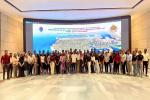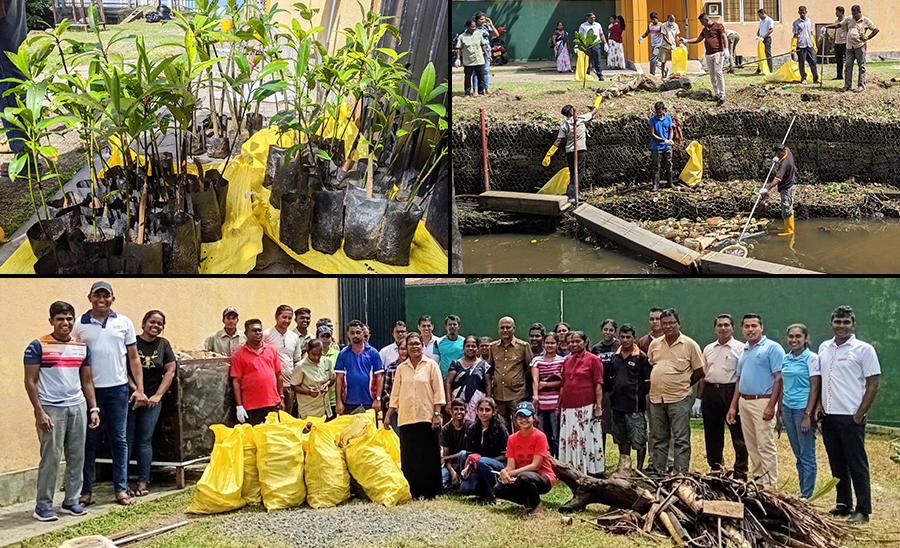The collective dedication of the team resulted in the removal of 40 kilograms of plastic waste and 35 kilograms of glass debris from the ocean strainer, installed in the Mawakada Canal, preventing these materials from reaching the ocean.
In addition to the cleanup initiative, Hikka Tranz by Cinnamon also organized a mangrove planting program on the same day.
Over 20 mangrove plants were planted along the banks of Mawakada Canal, reinforcing the Resort’s commitment to fostering a healthier coastal ecosystem, in Hikkaduwa.
Mangrove plants are a crucial part of the wetland ecosystem, renowned for their ability to provide habitats for aquatic life and protect coastlines from erosion, making this a vital step in restoring ecological balance in the area.
Mawakada canal is one of the two tidal canals of the Hikkaduwa river, and it plays a crucial role as a water supply route for mangroves and vegetation cultivation in the region.
However, due to pollution and changes in the weather, blockages have threatened both the environment and the livelihoods of the local community.
With the participation of nearly 15% of the Resort’s workforce, inclusive of the management and the executive staff members, this event marked a significant milestone in the Resort’s sustainability efforts, demonstrating their dedication and responsibility in preserving the ecosystem and the natural beauty of the area of operation.
The project was led and coordinated by the General Manager of Hikka Tranz by Cinnamon, Lankesha Ponnamperuma, with the guidance of Vice President, Quality Assurance, Health & Safety, Sustainability and CSR of Cinnamon Hotel & Resort, Shanez Wijesinghe.
In line with Cinnamon Hotels & Resorts' Environmental, Social, and Governance (ESG) approach, Hikka Tranz by Cinnamon remains committed for the wellbeing of the planet while also empowering the surrounding community. As they continue to set an example of environmental responsibility, their actions serve as a source of inspiration for a cleaner, more sustainable future.























